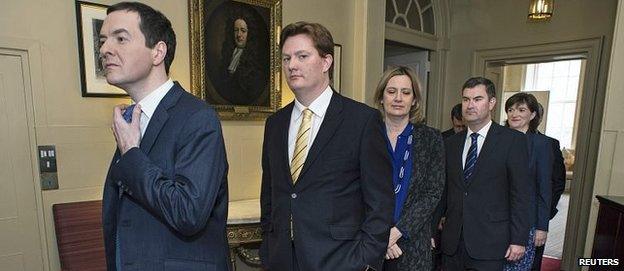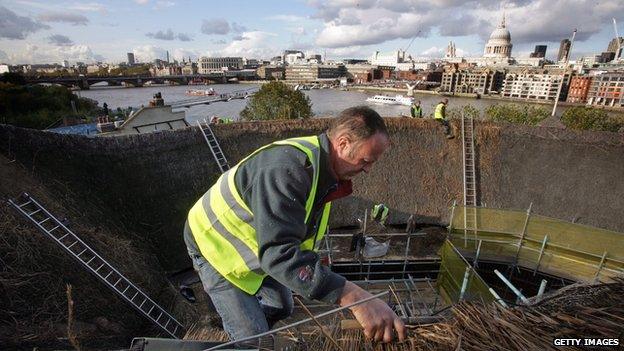Budget 2014: George Osborne's Essex appeal
- Published

Ed Miliband's attack was unsurprising: "Working people are worse off under the Tories."
To cries of "down, down" from the Labour benches, he said living standards were down in every year of this government.
So the chancellor had plenty of relatively small initiatives - and some larger ones - to demonstrate that he too could address those voters who are concerned about the cost of living.
Or, in the words of one Conservative commentator, he wanted to show the government has "Essex appeal" - talking to the type of voter who may have opted for Labour from time to time but had been attracted by Conservative policies such as Right to Buy in the past, and may even be tempted by UKIP in the future.
In doing so, some may argue that the chancellor has a rather stereotypical view of the working class, because his munificence mostly seemed to extend to bingo and beer - a penny off a pint, and a halving of the bingo tax. (Oh, and for Wessex appeal, cider duty was frozen.)

The personal allowance - the point at which income tax kicks in - will be raised further from £10,000 to £10,500 next year, just ahead of the election.
The full benefit of this tax cut will also be made available to those who pay tax at 40%, rather than being clawed back.
But some think tanks - such as the Institute for Fiscal Studies and the Resolution Foundation - say there are more effective ways of helping the lower paid, through targeted tax credits or by raising the considerably lower threshold at which National Insurance is paid.
National Insurance, after all, looks and feels like a tax to those who pay it.
Labour says it's a "con", because there have been 24 tax rises during this Parliament, so an increased allowance gives very little back in return.
The chancellor also announced there would be a vote next week in Parliament on his welfare cap - a signal that he won't squander too much tax taken from people's hard-earned incomes on benefits (though the cap excludes jobseeker's allowance and the state pension).
He thinks in doing so he will also set a trap for Labour.
But thanks to the Lib Dems, the initial size of the cap isn't too tight - and most of the arguments over future welfare cuts will come at election time and not before.
And Labour's shadow chancellor Ed Balls told the BBC after the Budget statement that his party would be voting in favour of the cap next week.
So much for the politics. The economics are a little less clear-cut.
There was certainly a slew of measures to underpin the chancellor's claim that he was trying to build a resilient economy:
Very generous investment allowances for business
Help for employers to take on more apprentices
Research and development allowances for struggling enterprises
Cuts in energy costs
And more incentives to save rather than spend - including an increase in the tax-free Isa nest eggs.
But some measures were rather more ambiguous.

Giving people untrammelled access to their pension pots on retirement - and slashing the tax rate for taking money out early - might encourage a splurge when people leave work but could lead to a dearth of cash later in life.
This measure might suggest that the chancellor is anxious for the increased tax receipts that would come in the short term if people empty their pension pots (and pay 20% tax on most of their value) - and that he is equally keen to see that cash being spent on, say, the long-awaited conservatory to boost builders' profits and keep the economy moving.
That said, those dependent on private pensions are less likely to feel ripped-off as a result of some the pension reforms, including the right to independent advice.
And it's also possible that some announcements apparently designed to make the economy more resilient might make any future political arrangements less so.

As well as clearing the structural deficit in the next Parliament - some way behind his initial timescale - George Osborne used one of his favourite phrases , "we'll fix the roof while the sun is shining", to signal he wanted to run a surplus, even if that meant continuing cuts in spending.
That might make it more difficult to build a future coalition, if needed, because, as Nick Clegg has said time and again, while he wants to "fix" the economy, he doesn't want "cuts for cuts' sake".
The chancellor did at least have some good news to deliver, with the economy growing and incomes beginning to catch up.
But on one issue he and his Lib Dem colleagues clearly concur.
It's taken longer than anticipated for the economy to turn round.
So they must be patting themselves on the back having opted for a five-year, and not a four-year, fixed-term Parliament in the coalition agreement.